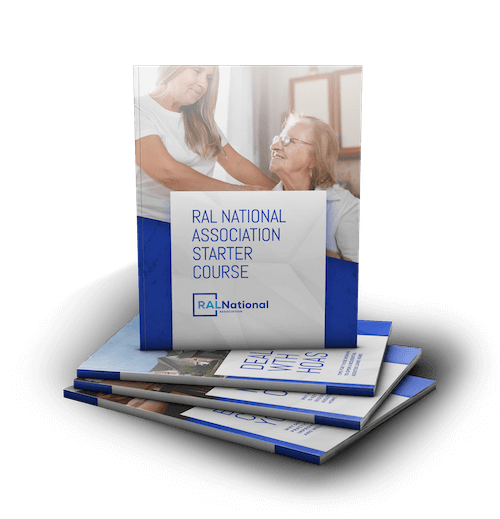When A Loved One’s Age-Related Decline Is More Than Expected During A Short Space Of Time, It Might Be Time To Have The Talk.
During your visits, are you observing significant changes in their behavior and ability to take care of themselves? It may seem sudden that they need more help with daily tasks. Perhaps your elderly loved one is doing fine, but you recognize that they are getting older and activities are becoming more difficult. It is essential to discuss financial business, residential assisted living, and personal decisions related to their advanced years. Moreover, it is important to know your loved ones end-of-life wishes. These are sometimes difficult conversations to have, let alone initiate. During a visit, you may notice age-related decline, cognitive impairment, memory loss, or other health issues. Many of these concerns have the potential to jeopardize mom or dad’s safety. There are several indicators to look for to determine if a senior needs assistance with daily living.
Top 5 Activities Of Daily Living
-
- Properly dress themselves
- Prepare meals and eat properly
- Use the restroom independently
- General mobility
- Basic home maintenance
In regards to these top 5, it is necessary to watch carefully for these traits in your loved one. Health decline is a natural part of life and should be regarded as a milestone. Many families have difficulties confronting age-related decline. It’s an uncomfortable and often sad subject. However, it is important to ask questions and seek answers.
Common Questions To Consider
- Is their hygiene and appearance normal?
- Is their home presentable and stocked with groceries?
- Are they eating properly and able to move around?
Sadly, as we age we become more vulnerable. As a result, family and loved ones should look to ensure that their wishes are protected and carried out. To ensure that the business affairs and asset protection of your loved one is in place, a conversation must be had. Rather than put it off or wait until it’s too late, start the conversation today.
KEY COMPONENTS TO CONVERSATIONS ABOUT AGING
- Financial Planning
Know your loved one’s financial state. Gather all necessary documents related to assets as well as liabilities. Create a budget to ensure your loved one has proper financial stability.
- Health and Safety
Consult with doctors and nurses to understand diagnoses and treatments. Ensure proper medicines, therapy, and visits are being followed accurately.
- Legal Planning
It is important that a family representative has been authorized to receive healthcare information. In addition, life insurance policies, medigap insurance plans, donor information, and power of attorney documents may be necessary to collect from www.contant-law.com/.
- Mental Health
Know the mental state of your loved one. Conversations are only substantive when your loved one clearly understands and can respond appropriately.
- Medical Procedures
Be sure to identify your loved ones end-of-life wishes for medical procedures. This ensures you are protecting and carrying out the wishes of your family member. It is important for everyone to have a will and a living will. This is even more apparent as seniors get older. Families must overcome the reluctance of talking about end-of-life subjects. It is in the advantage to all parties involved that plans and preferences are discussed in depth as early as possible. Avoiding end-of-life conversations because of insensitivity, wrong approach, or morbid conversations lead to a more difficult experience and is more painful for everyone involved.
PRO-TIPS TO AGING CONVERSATIONS
- Write an agenda,
- Be respectful,
- Involve all needed parties,
- Practice the conversation, and
- Be helpful.
POSITIVE EFFECTS OF HAVING A CONVERSATION
Talking about end-of-life wishes is not only about dying. It is all about life and how your loved one wants to live during their last years. It is important for others to know their preferences, so they’re able to live out these years on their own terms. Humans are not mind readers, thus having an advance directive is extremely necessary. During health emergencies, trying to guess what a person may want becomes a traumatic and stressful situation. The first option families have is to start having conversations about aging.
HAVE YOU JOINED THE RAL NATIONAL ASSOCIATION?
Joining the national association for residential assisted living is an important component to building a unified coalition of industry leaders. The Residential Assisted Living National Association is the nation’s only RAL industry association providing resources, education and support to RAL home owners and operators. RALNA provides trending topics ranging from legislation, discounted products, unique services, marketing resources, employee retention tips and so much more. Contact at www.RALNA.org for additional information on providing quality care for seniors across the country. Become a member today and learn how to advance the RAL industry as a united group of owners and operators – there is power in unity. If you found the information on this article valuable, you’ll find enormous benefits by becoming a member of our community. Visit this page to become a RALNA Member.











